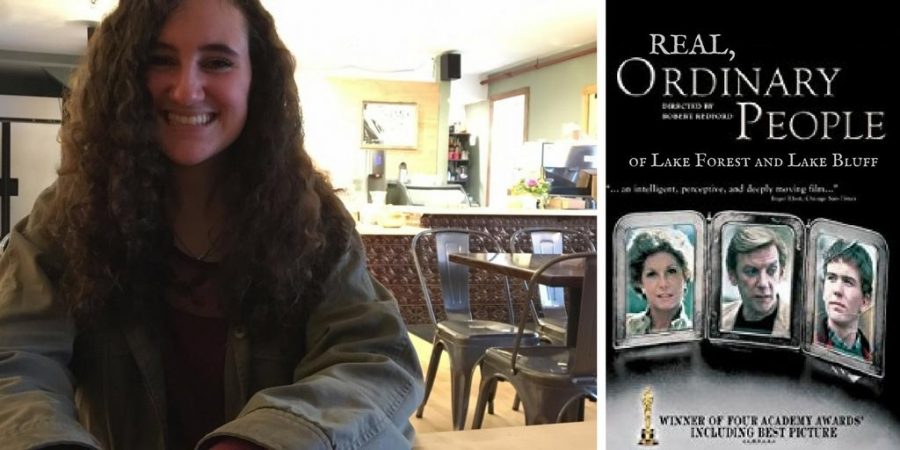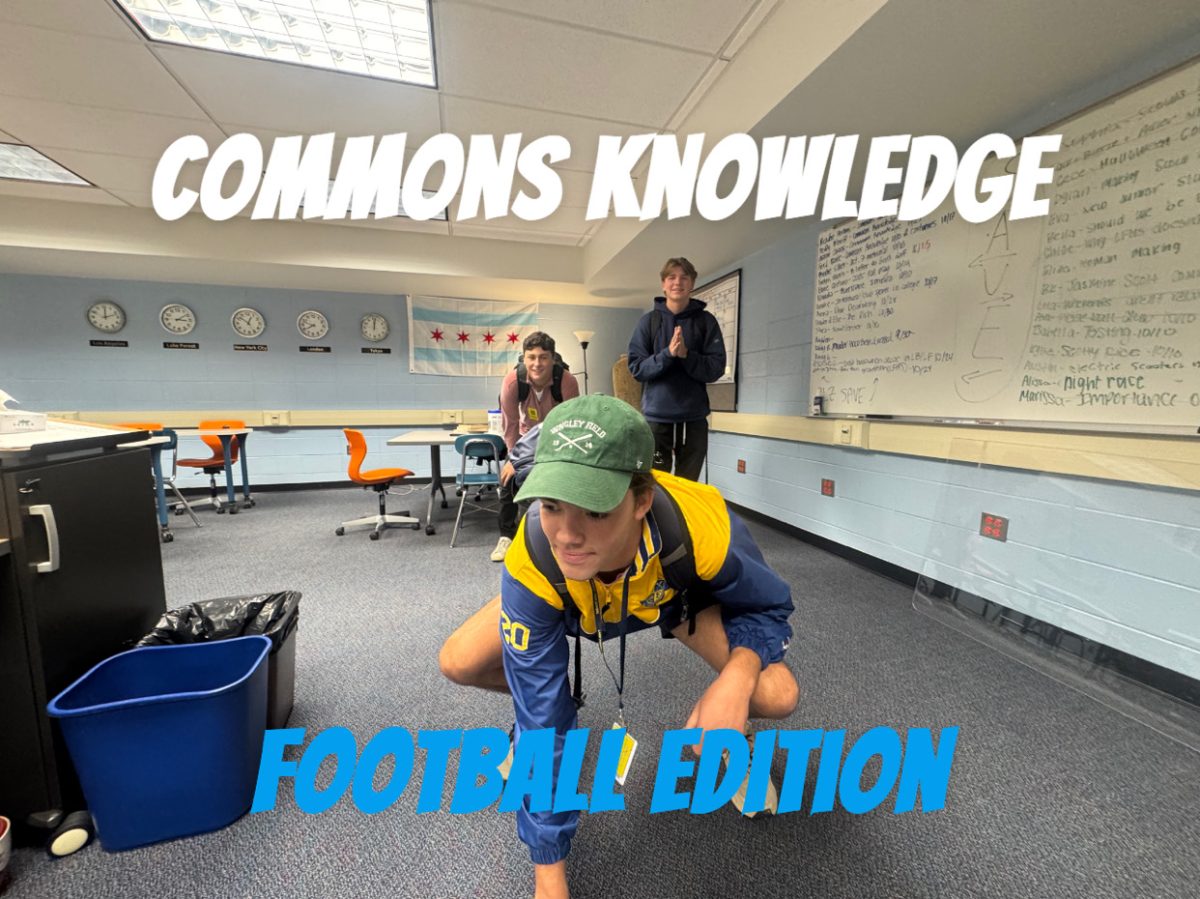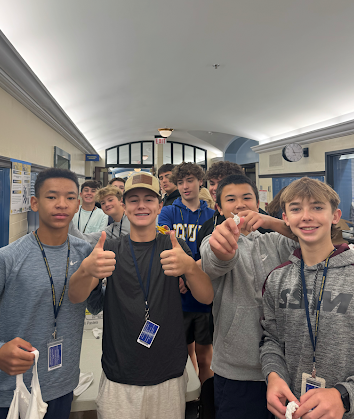Inspired by the title of the Lake Forest based movie Ordinary People, in her column “Real Ordinary People,” senior Teresa Fawcett showcases the stories and lives of the real, ordinary people from the Lake Forest/Lake Bluff communities.
She wakes up, cooks something for breakfast, and grabs a tap tap. I had to stop senior Eliza Hoobler here in her description of an average day in her life in Morne Rouge, Cap Haitien, a small town in Haiti she and her family visit frequently to volunteer in an orphanage and school located there. A tap tap? “It’s a type of taxi car,” Hoobler explains, waving her hands to show me the length of two benches in the back behind a regular vehicle. “When you want to get out, you tap.” It is evident, based on my pure imaginations of what a tap tap may look like, that Morne Rouge, is far, far from home.
And home for Eliza Hoobler? That’s Lake Bluff, Illinois. The town she has lived in since she was 2 years old. She was raised on the quiet suburban, ravine-cutting streets; she has been educated in the public schools, eaten the ribs from the annual rib fest, and watched the 4th of July parade from a perch on a curb on Scranton Avenue. Hoobler would describe herself as a child as “a pretty chill kid,” and when she wasn’t running around the ravine with friends, her nose was in book, or she was participating in a mix of activities – playing with princesses, or skipping around in mud.
In high school, Hoobler has been involved, like she was as a kid, in a mix of activities. However, as a teenager these activities have taken more of a mature role in her life. From her involvement with her Youth Group, SHYG, to being a small group leader of a group of 12 3rd grade girls at her Church (she has been leading this small group since the girls were 1!), to volunteer work in the community, to her involvement in Haiti, she has a busy schedule.
Hoobler and her family have been going to Haiti since she was 13 years old. They travel to an orphanage in Morne Rouge 2-4 times a year where her purpose there is to do simply as much as she can. She helps kids and teenagers with their schoolwork in subjects ranging from algebra to French. She spends time with the kids, gets to know them, listens to what they have to say, and the stories they share. A favorite memory of hers is hosting a movie night at the apartment her family owned in the town, making spaghetti with a big group of the kids and sitting down to a popcorn filled late night. And although these relationships with the kids are difficult to form at first and they take time, Hoobler recounts, “the rewards of that relationship outweigh any of the distrust.”
One of the biggest challenges for these kids in Haiti, says Hoobler, is language. Although in Haiti, spoken word is conversed in Creole, school usually is taught in French, while the kids in the orphanage in Morne Rouge, Cap Haitien are taught in English. For the kids who don’t know French, life outside the orphanage will be very difficult. Hoobler tries to help with this, as an AP French student at LFHS, a native English speaker, and a student of Creole (when I asked if she was fluent in Creole, she responded, “I hope so!”) Although the school system the kids in the orphanage work through is “a self-paced American homeschooling system from the 50’s,” Hoobler, and the hardworking orphanage staff are doing what they can.
It is difficult, however, for a 17 year old senior in high school to fly to Haiti as often as she would ideally fly. Balancing school, activities, friends, and Haiti is a unique, but complex dilemma in Hoobler’s life. The constant shifting and spending time with the kids to running back to Lake Forest High School can be emotionally taxing, tiring, and difficult to keep up with. However, Hoobler explains “I don’t know why [going to Haiti] wouldn’t be for a reason and something in the future.” Next year at college–a decision she, admittedly, is still undecided about– she plans to study either nursing, public health, holistic healing, or a mix of the three. She would like to work in an area with poor public health, maybe a reservation, the inner city, or perhaps Haiti, the country she has been visiting since she was 13 years old.
Back home, Hoobler takes advantage of the town she was raised in. Her favorite things about Lake Bluff includes the education, the safety, and the beauty of the town. For Hoobler, Lake Bluff is a good place to grow, learn, and flourish. Kids can be raised without constantly fighting the culture and fighting the town itself, they can grow up completely themselves.
Back in Haiti, many of the Haitian teenagers will be following similar paths as Hoobler next fall. A handful of the young adults from the orphanage will be attending college next year, and six of those students will be attending colleges in the U.S. From Seattle to Montana to Indiana, perhaps Hoobler will be near a Haitian peer wherever she finds herself next September.
Hoobler describes her role in Haiti as “doing what I can in the mess… this thing that can’t be fixed. There is so so much beauty and I love it.” For Hoobler, going to Haiti is something she gets to do, it is an experience where “[she] receives more than what [she] can give from it.” Hoobler carries this demeanor back home with her. Although life at Lake Forest High School involves activities far from a tap tap, Hoobler does what she can in her own community too. Through her church involvement and leadership with SHYG, tutoring at Elementary schools, and her calm disposition in classes, Eliza Hoobler is a Real Ordinary high schooler, Haiti volunteer, aspiring nurse, and Lake Bluffer.













